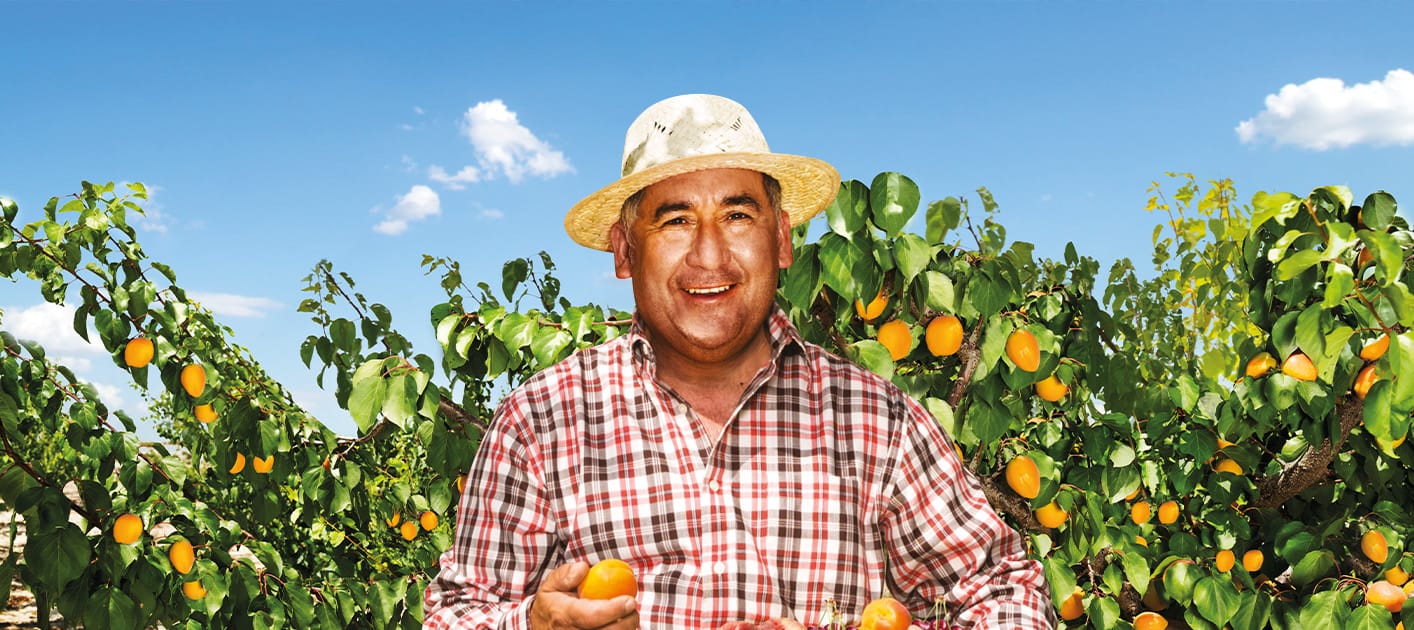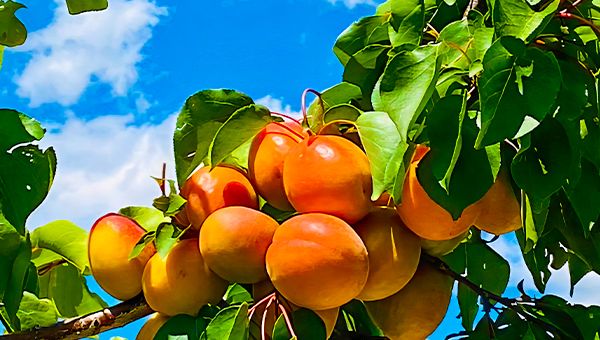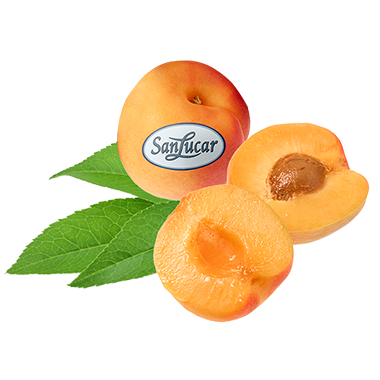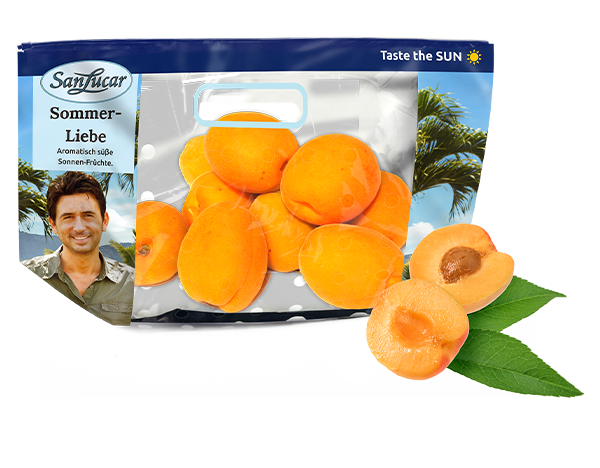
Eine Frucht zum Verlieben.
The velvety and sweet seducers.
“Our apricots are truly tempting. They have velvety soft skin, a heavenly sweet aroma and possess a cheerful orange-yellow glow. There’s no point in resisting,” laughs picker Jorge. We grow our delicate summer favourites on our Spanish plantations near Murcia and Caspe.

There, they are spoiled by a sunny, warm and dry climate and by our experienced Master Growers. We also harvest our apricots in Italy, France, Turkey and South Africa, for example. We select the best and most aromatic varieties so that you can taste sweet summer all year round.
As apricots continue to ripen, it is important to know the ideal time to pick them. That’s why we measure the sugar-to-acid ratio before picking. And only when the sweetness is just right do our experienced pickers get to work.
If you leave the fruits at room temperature, they become sweeter and softer. They are also a real treat for the palate as a jam, in a compote or on a cake. The English playwright William Shakespeare even attributed an aphrodisiac effect to the apricot in his A Midsummer Night’s Dream. So what’s wrong with falling in love?

Good to know
If the sunny stone fruits yield softly when pressed, they are ripe, sweet and delicious.
More interesting factsabout apricots
Country of origin
For example in Spain and South Africa, they have the ideal climate to ripen into sweet fruit. But the fact that they taste so particularly good is also due to the fact that our master growers plant only the most aromatic varieties from the outset.
Storage
In the refrigerator they will keep for a few days. If you like the fruits even sweeter, let them soften a little at room temperature, because as they ripen, the acidity decreases, and the sugar content increases.
Nutritional information
| Vitamin A (mg/100 g) | 1.9 mg |
| Vitamin B (mg/100g) | 2.1 mg |
| Vitamin C (mg/100 g) | 9.4 mg |
| Vitamin E (mg/100 g) | 1 mg |
| Potassium (mg/100 g) | 280 mg |
| Calcium (mg/100 g) | 16 mg |
| Calorific values: Energy | 42 kcal |
| Fett thereof |
0.1 g |
| Monounsaturated fatty acids | |
| Polyunsaturated fatty acids | |
| Carbonhydrates | 8.5 g |
| of which sugar | 7.7 g |
| Protein | 0.9 g |
| Salt | 2 g |
| © German Food Code 3.02 |
History
Apricots belong to the rose family and originate in northeastern China and parts of Korea, where they were cultivated as early as 1000 BC.
Tips and special features
Apricots are much more than peaches that are too small. Since the delicate fruits do not drip when bitten into, they are the ideal snack for on the go. They also contain provitamin A, vitamins B1, B2 and C, and minerals such as calcium, iron and zinc. Even their seeds have it in them. When you crush the seed inside, sweet marzipan aroma comes to light. That is why apricot kernels are used, for example, to make amaretto liqueur.
Taste in harmony with people and nature
We use our modern, digitally controlled water management system to save water, always rely on natural predators first when dealing with pests and protect the bees.
More about our social responsibility

